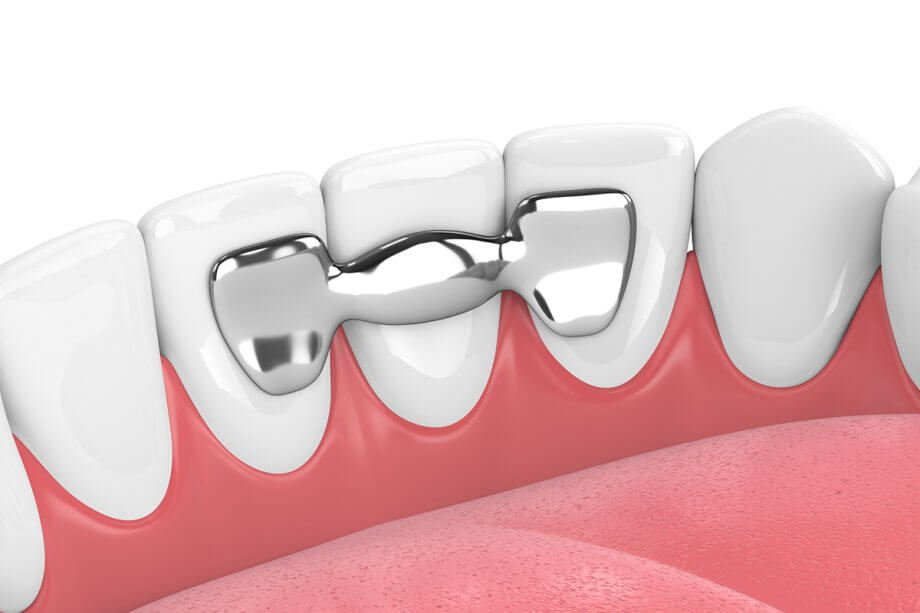If you're thinking about getting a dental bridge, you want to know how long it will last.
Dental bridges can effectively replace missing teeth and restore your smile, but they do require proper care and maintenance. Here's what you should know about the typical lifespan of dental bridges and how to make yours last.
What is a dental bridge?
If you have missing teeth, a dental bridge may be a good solution to restore your smile. Dental bridges literally bridge the gap left by lost teeth. Here's how they work:
The anchoring teeth on each side of the space are prepared by the dentist and crowned. These anchoring teeth are called abutments. An artificial replacement tooth (or teeth), known as a pontic, is attached to the crowns on each abutment tooth. This creates a bridge that spans the empty space where teeth are missing.
The materials used for dental bridges vary. Porcelain, ceramic, metal alloys, or a mix can be used for the crowns and pontics. Your dentist will recommend the best material choice based on the location in your mouth, your bite, and your cosmetic goals.
The result is a complete restoration that looks natural and functions like regular teeth. With dental bridges, you can speak and eat properly, avoid tooth movement or jaw problems, and smile confidently again.
Types of dental bridges
If you're considering a dental bridge, you have options when it comes to the type or design. Here's an overview of the most common dental bridge types:
- Traditional bridges are the most popular. They involve crowning the teeth on either side of the missing tooth gap and anchoring a false tooth in between.
- Cantilever bridges are like traditional bridges, but only use one crowned tooth next to the gap for support.
- Maryland or resin-bonded bridges bond to the back of adjacent teeth with resin instead of crowning them. This is less invasive.
- Implant-supported bridges use dental implants surgically embedded in the jawbone to anchor the bridge. This provides excellent stability but requires adequate bone.
When weighing the types of dental bridges, consider factors like how many teeth need replacing, if you have healthy anchoring teeth and your budget. Discuss the advantages and disadvantages with your dentist to choose the right bridge for your unique needs and smile goals.
Lifespan of a dental bridge
How long your dental bridge will last depends on several key factors. With proper oral care and regular dental visits, you can expect your bridge to last anywhere from 5-15 years or longer.
The type of bridge impacts longevity.
- Traditional bridges typically last 10-15 years.
- Cantilever bridges may have shorter lifespans, around 5-10 years, due to higher stress on the abutment tooth.
- Maryland bridges can last 5-10 years as well.
- Implant bridges often last the longest - even a lifetime with diligent care.
Oral hygiene is critical, so be sure to brush and floss around all parts of your bridge daily to prevent decay or gum disease, which can shorten its lifespan. Also, avoid biting nails, ice, or other hard objects.
Also, see your dentist twice a year for cleanings and checkups to catch any issues early. Things like trauma, excessive biting forces, or grinding can also negatively impact the longevity of your bridge.
Signs that your dental bridge needs replacement
Even with good care, dental bridges may eventually need replacement. Signs it's time for a new bridge include:
- Looseness or shifting. If the bridge moves or feels loose, the abutment teeth might be weakening. This instability indicates the need for a replacement bridge.
- Persistent pain or discomfort around the bridge is not relieved by over-the-counter medication. This could signal an underlying problem like infection or decay.
- Visible damage like chipping or fracturing of the porcelain. Cracks or breaks can lead to more issues, so prompt replacement is recommended.
- Recurring gum inflammation, swelling, or bleeding around the bridge area may indicate gum disease. Treating the gums and addressing bridge problems is important.
Schedule a dental appointment right away if you notice any of them. A thorough evaluation can determine if your bridge needs repair or complete replacement to restore proper function and your beautiful smile.
Dental Bridges in Bergen County, NJ
A dental bridge can transform your smile and dental function if you have missing teeth. To get the most out of your investment, understanding bridge longevity and care is key.
With diligent oral hygiene, avoiding harmful habits, and regular dental visits, your dental bridge can last 5-15 years or longer.
Caring for your bridge properly promotes optimal durability and performance. Partner with your dentist for guidance on maintenance and any needed repairs or replacements. For more information, contact us at 862-247-8030 to schedule your appointment.
Frequently Asked Questions
What are the advantages and disadvantages of dental bridges?
Some advantages of dental bridges are that they can restore your smile and allow you to eat normally. They don't require drilling down healthy teeth or supporting implants. Some disadvantages are that they may require grinding down the adjacent teeth, and they can be more expensive than other options. Bridges may come loose over time and require repair or replacement.
What care is required for dental bridges?
Caring for dental bridges requires regular brushing and flossing to keep the abutment teeth and bridge clean and prevent decay. Use interdental cleaners to remove plaque from under the false tooth. Avoid sticky and hard foods that could dislodge or damage the bridge. See your dentist regularly for exams and professional cleanings. Let your dentist know if you have any pain, soreness, or changes around the bridge.


